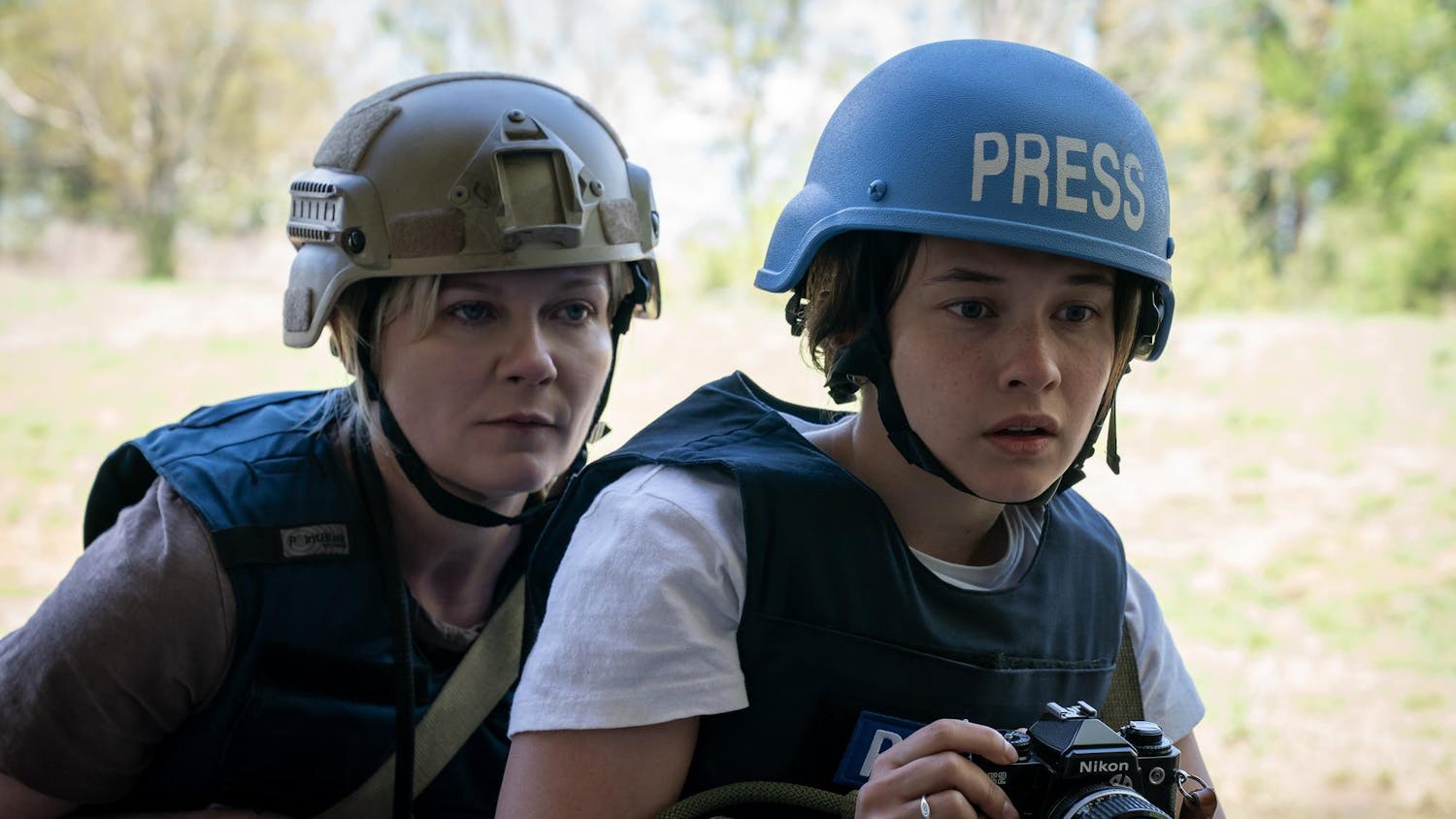With a red glow reflected off the curtain of the Musical Arts Center, the Philharmonic Orchestra began the somber prelude to "Faust" by Gounod under the baton of maestro Imre Pallo. Slowly, the curtain rose for the Saturday evening performance of the French opera about the dangers of lust and temptation.\nSung in French, the production included fine singing, lush musicality and haunting scenery, but the overall presentation was not as harrowing as was expected.\nDoctor Faust, an old, bitter man, seeks the youthful joys of his past. The devil, Mephistopheles, offers Faust his wish in exchange for his eternal soul. Faust agrees because he loves a young woman, Marguerite, and wants to win her love. As a young man, Faust and Marguerite become lovers; but they never marry, and their relationship is condemned by the villagers. Faust tries to bring the virtuous Marguerite with him (inevitably to Hell), but she refuses, thus saving her soul.\nProduction designer Max Rothlisberger, a professor emeritus of music and opera scenic design, created looming arches that hover over the locales, to remind the audience of the omnipotent power of the Lord. Locations were suggestive, but detailed and beautiful to behold.\nLighting designer Michael Holt, a senior, created scenes with brilliant designs (the final scene was haunting). But too often the set was so dark that it became difficult to watch, causing the actors to be illuminated by dim lights and leaving them roughly unrevealed to the audience.\n"Faust" is a long opera. Done here in two acts, the length is nearly three hours and some scenes are difficult to sit through -- specifically the end of the first act, in which Faust and Marguerite profess their love. The music was drawn out and made it difficult to stay awake.\nBut "Faust" contains some of the best choral singing of any IU opera production and the best of many operas in general. The numbers were delightful to listen to, although not staged particularly well (in semicircles most of the time).\nGraduate student Johan Weigel, as Faust, was not particularly interesting and his singing was often forced rather than flowing. Stephanie Johnson, a graduate student, did not make Marguerite intriguing, but she did sing with beauty not often heard in the MAC.\nThe best performances both from the standpoint of voice and character came from graduate student Kimberly Gratland James as Siebel and performance diploma student Jonathon Bainbridge as Valentin, Marguerite's brother.\nJames' Seibel was reminiscent of a Cherubino from "Marriage of Figaro" -- delightful to listen to and too sweet to be the rough man the character aspires to be. Bainbridge, long absent from a MAC performance, is the best singer in the production and gave Valentin a humanistic quality that made it difficult to condemn him in his death.\nThe Philharmonic Orchestra played in top form, accompanying the singers rather than stealing the spotlight. Pallo created the mood changes with mastery and milked all phrases, yielding a fine orchestral sound.\nThe IU opera production of "Faust" is mostly good, but depending on the cast could be better or worse. Although one could become sleepy and annoyed, the long opera is interesting, well sung and masterfully played.
'Faust' opera struggles
Get stories like this in your inbox
Subscribe





